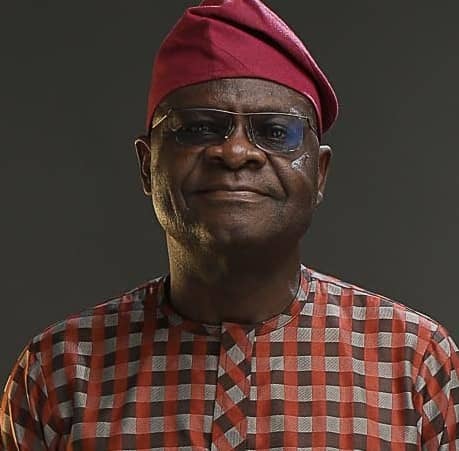By Diran Onifade
Governance thrives on transparency, accountability, participation, and rule of law—pillars that enable governments to serve their citizens effectively. These values, outlined in the Nigerian Constitution, have traditionally been upheld through the media. As Thomas Jefferson famously remarked, a free and vibrant press is critical to democracy. In today’s digital age, the rise of new media has revolutionized the way governance is monitored and public interests are protected.
What Is New Media?
New media refers to digital technologies and platforms that facilitate the creation, distribution, and consumption of information. These platforms include social media, blogs, online news, podcasts, and interactive websites, transforming traditional communication channels. In Nigeria, new media complements legacy media—television, radio, and print—which have also embraced digital transformation.
The Nigerian New Media Landscape
Nigeria boasts a diverse and dynamic digital media environment. Platforms like Twitter, Facebook, and Instagram have emerged as hubs for citizen engagement, activism, and discourse. Online outlets such as The Cable, Premium Times, and Sahara Reporters have redefined journalism, offering investigative pieces and breaking news at unprecedented speed. Influential voices like David Hundeyin, Aisha Yesufu, Very Dark Man, Daddy Freeze, and others amplify public concerns and influence policy debates.
Impact of New Media on Governance
New media plays a vital role in promoting good governance by increasing transparency, fostering citizen participation, and holding officials accountable. Here are specific ways it has shaped Nigeria’s democratic landscape:
- Citizen Journalism and Activism
Platforms like Twitter and Facebook empower citizens to document government actions and malpractices. The #EndSARS protests in 2020 exemplify this power, as widespread online documentation of police brutality forced government responses and reforms. - Rapid Communication During Crises
During the COVID-19 pandemic, agencies like the Nigeria Centre for Disease Control (NCDC) used social media to disseminate accurate information, track cases, and counter misinformation. - E-Governance and Transparency
Programs like the Treasury Single Account (TSA) and Integrated Payroll and Personnel Information System (IPPIS) gained traction through online advocacy. Social media campaigns highlighted their significance, ensuring compliance with transparency objectives. - Improved Electoral Processes
New media has redefined electoral participation. The Independent National Electoral Commission (INEC) now uses digital platforms for voter education, result dissemination, and countering false claims. Citizen monitoring during elections helps expose malpractices, fostering accountability. - Public Accountability
Initiatives like BudgIT and Tracka utilize new media to track government spending and projects, enabling citizens to monitor the implementation of public policies. - Advocacy and Marginalized Voices
Social media amplifies the voices of marginalized groups, exemplified by campaigns like Not Too Young to Run, which resulted in constitutional reforms lowering the age limit for political candidates. - Whistleblowing Platforms
Online platforms provide anonymity for citizens reporting corruption, resulting in the recovery of misappropriated funds and increased awareness of public sector inefficiencies.
Challenges in the New Media Ecosystem
While new media has been transformative, it is not without challenges. Fake news, misinformation, and cyber harassment pose threats to constructive engagement. Additionally, internet access remains uneven across Nigeria, limiting the reach of new media in rural and underserved areas.
Harnessing New Media for Governance
To maximize the potential of new media, governments, citizens, and media professionals must adopt innovative strategies:
- Promoting Transparency
Government agencies should actively use social media for real-time updates, citizen engagement, and addressing public concerns. - Encouraging Participation
Online platforms can host consultations, surveys, and interactive forums, enabling citizens to contribute to policymaking and governance. - Strengthening Media Literacy
Educational programs can empower citizens to critically evaluate information, reducing the impact of fake news and disinformation. - Fostering Accountability
Journalists and activists can leverage new media tools to monitor government activities, visualize data, and investigate corruption. - Advancing E-Governance
Digital initiatives like e-voting and online grievance redress mechanisms can enhance governance efficiency and citizen satisfaction.
Setting an Agenda for Good Governance
Journalists and civil society actors can play pivotal roles in leveraging new media:
- Real-Time Reporting: Live coverage of government events and legislative proceedings fosters transparency and accountability.
- Data Journalism: Tools like infographics and interactive maps can break down complex government data, making it accessible to the public.
- Advocacy Campaigns: Digital platforms can mobilize citizens around social causes, driving policy changes and societal reform.
Conclusion
New media has proven to be a double-edged sword, capable of both empowering citizens and perpetuating challenges. However, when used responsibly, it has the potential to transform governance in Nigeria by promoting transparency, accountability, and inclusivity. As digital technologies continue to evolve, their role in fostering good governance will remain pivotal, ensuring that governments remain true to their mandate: serving the people.
Presented at the Official Unveiling of Ikoro Global TV Channel on Friday, 13 December 2024.



